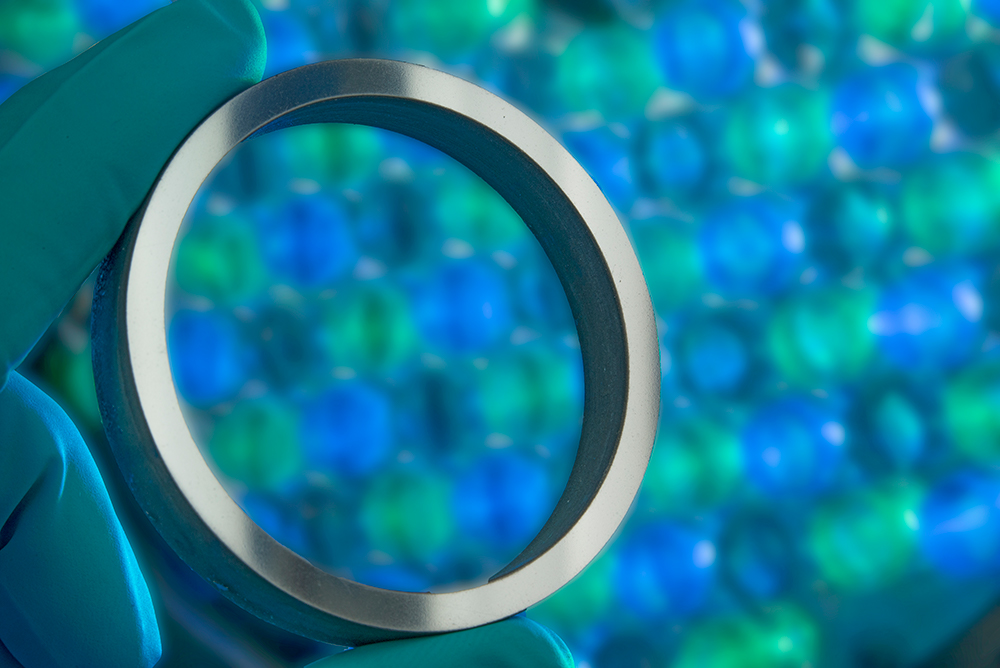Without jerking and energy loss – New slide bearings with superslide effect
20 percent of the energy generated worldwide is lost through friction. Rolling and slide bearings are therefore used in many mechanical applications to reduce friction. However, rolling bearings have some disadvantages in terms of cost, weight and service life. Slide bearings, on the other hand, offer interesting solutions, but again have higher coefficients of friction. New friction-reducing materials and lubricants could save a large proportion of these friction losses in slide bearings. The greatest potential lies in the transportation and energy sector.

SUPRASLIDE – The modular system for superlubricating materials and sustainable lubricants
This is exactly where the newly launched project "SUPRASLIDE" comes in. Researchers from the four Fraunhofer Institutes IWM, IPA, IWS and IKTS want to establish a modular system of different superlubricating materials such as ceramics, diamond, graphene or carbon coatings in combination with sustainable lubricants. These well-matched material-lubricant pairings can then be used for superlubricated bearings. With extremely low coefficients of friction of < 0.01, virtually loss-free new applications could be opened up in a wide variety of systems. With these super slide bearings, engineers in e-cars and e-bikes could design drive systems that are even lighter and have less friction, which would significantly increase the driving range. The new generation of slide bearing systems could also show their advantages in robotic positioning systems. Unimagined precision would be possible thanks to jerk-free sliding. Of course, the researchers also have their sights on the energy sector, where pumps with extremely low-friction slide bearings could contribute to significant energy and CO2 savings. To ensure that the transfer to industry is successful, the consortium is relying on a simple design for the slide bearing systems, which are thus widely scalable. Initial prototypes are to be tested with industrial partners as part of the project.
Wear-resistant ceramics as basis for robust sliding layer components
For the robust new sliding components, Fraunhofer IKTS is optimizing the tribological properties of wear-resistant materials based on Si3N4, SiC and SiC diamond ceramics. To this end, the researchers are specifically adapting the microstructure, grain boundaries and surface structuring. To characterize the new surfaces and their interaction with the lubricants, the IKTS team not only draws on its extensive analytical expertise, but also on the measurement of flow potentials. This enables it to record the surface charges and draw very good conclusions about the chemical nature of the new material surfaces. “Our goal is to work with our partners to create a new generation of slide bearings based on wear-resistant ceramics that enable 90 percent energy savings compared to conventional slide bearings with high friction losses,“ explains Dr. Mathias Herrmann, expert in superhard materials and head of department at Fraunhofer IKTS.